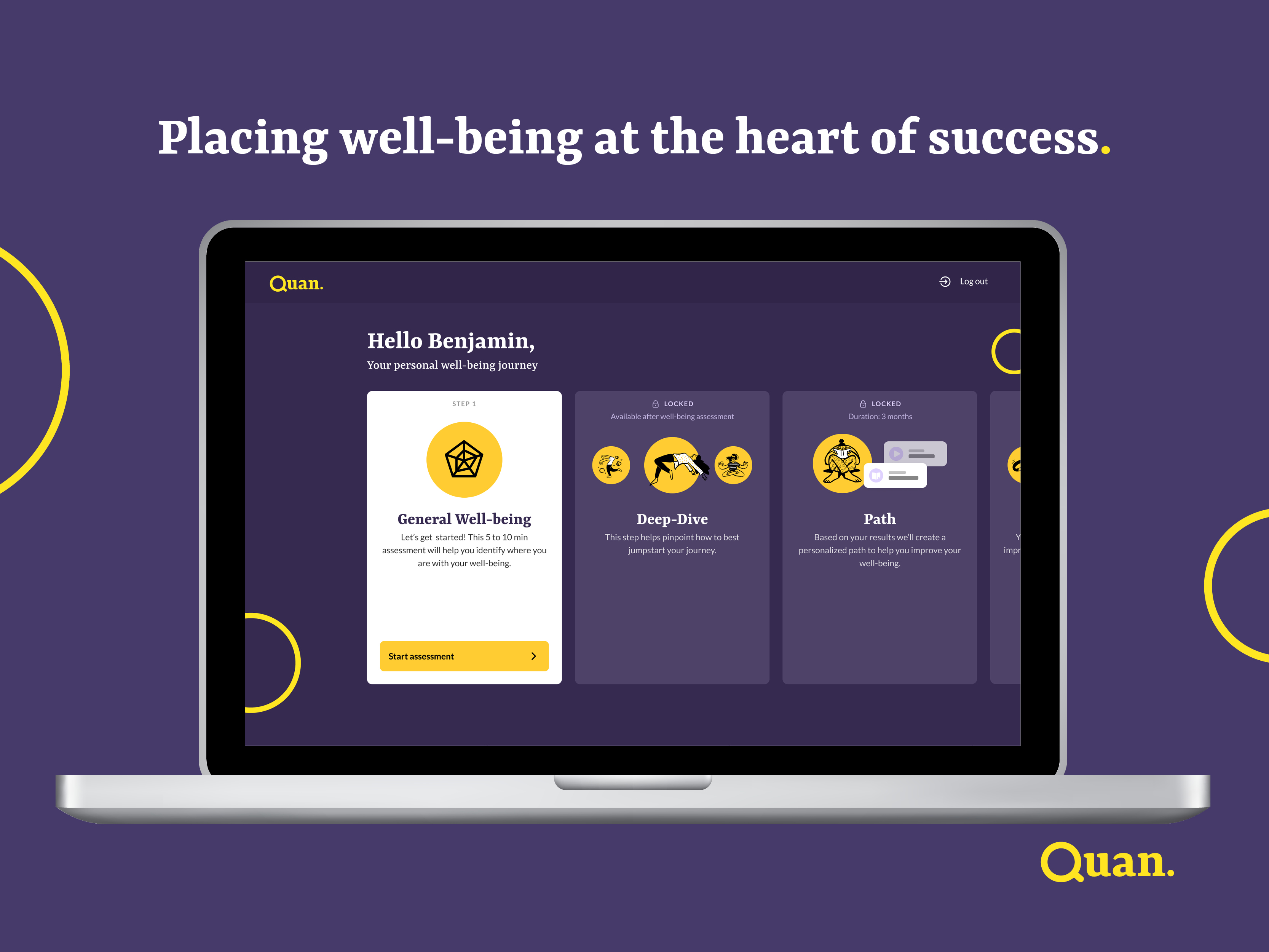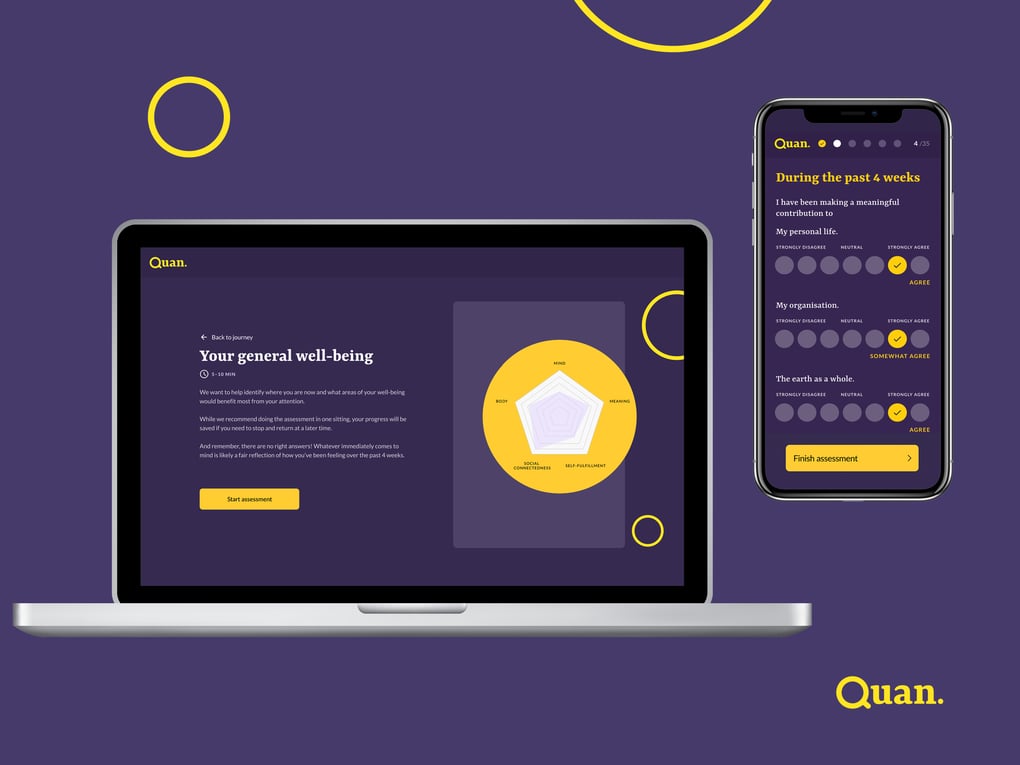Recently a slew of companies like Bumble and Hubspot have announced a company-wide week off for all staff globally to combat collective burn-out. While we can applaud them for acknowledging that the corona-virus pandemic has put additional stress on their employees, there is danger in PR-laden initiatives that effectively put a band-aid on systemic problems that run deep.

Photo by JJ Jordan on Unsplash
Since October, the number of employees affected by burnout has almost doubled, as reported by CNV. The research took into account over 2,600 employees, with one in five workers being on the verge of burn-out.
That the mental health consequences of the prolonged coronavirus crisis are becoming ever more prevalent comes at no surprise, and it’s not unique to specific sectors of the economy. The pandemic has, for many, proven to be a textbook context for burn-out. Burn-out by definition is heightened levels of stress and general dissatisfaction over an extended period of time, with insufficient recovery periods to mitigate the detrimental effects on workers’ performance at work and personal quality of life. It is not by chance that everyone in the Binnenhof (Tweede kamer) is exhausted - most recently Bas van’t Wout, Minister of Economy, resigned. And he is not alone - nervous breakdowns in the government appear to be more the norm these days with the list of ministers, dismissed because of burn-outs, growing longer.
One would hope that with such public figures citing burn-out as the cause of their resignations, that as a society we are nearing an inflection point regarding mental health. There are very serious and fundamental questions that need to be asked and explored on all levels of society if we are going to break down the wall of taboo built around mental health: What are the underlying causes of its rising deterioration for many workers? Who ultimately is responsible for fixing it? And how do we get started? Do individuals just need to be better at setting personal boundaries and not overwork themselves, or are the work conditions we are exposed to on a daily basis not sustainable anymore?
These were some of the questions Arosha Brouwer, founder of Quan, started to ask herself four years ago, long before the pandemic shook our outlook on what work could be and should be.
She embarked on an investigation, along with innovation experts, coaches and psychologists, into the impact of work on an individual’s well-being. Long passionate about digitalization and the future of work, the outbreak of Covid-19 only accelerated many of the trends she had been researching pre-pandemic. From that foundation and conviction, Quan was born early 2020.
“I conceived the idea of Quan at the same time as my second child. The experience of growing a startup in parallel to an actual human being was one of the biggest opportunities for personal and professional growth, and reinforced the importance of prioritising my own well-being alongside company success.”

From Australia to the Netherlands (with a few stops in between)
Raised by an engineer, in a world of facts and logic, Arosha has come a long way since her early days as a management consultant in Australia to working as an industry executive and independent consultant across Europe and now setting up a start-up in the Netherlands. While building her own consultancy four years ago, she was driven to gain a better understanding why certain companies were faster to innovate than others.
“I was very curious to understand why some organizations are better at stimulating innovation than others,” she shared. Following a period of extensive desk research Arosha could not ignore the noise coming out of Silicon valley.
“So I booked myself a trip to go find out for myself”. After interviewing founders, leaders and employees at a number of high profile scale-ups and tech giants, she quickly realized many corporations were just trying to copy the perks of the more innovative ones, but in copying blindly were missing the mark entirely.
“The sad truth is that companies are trying to offer a suite of perks - pool tables, free food, colourful walls - just because some big brands are doing it”. However, if you dig a little deeper you will note that forward thinking organizations are taking the same approach to workplace design as they are doing with product design - using data, psychology and experimentation to test what works best for their people,” explains Arosha.
With the outbreak of COVID-19 many companies only repeated the same bad habits. How many well-being webinars and free coaching sessions were being given by employers over the last year and a half?
“Everyone was offering one-size-fits all online trainings assuming that each employee just needed a better desk chair, or more online collaboration and communication tools to fill the gap. But I said to my team, let’s take a step back. Let's first look around us at what is going on. And so we did.”
From COVID-19 to Quan Well-Being
While for some it might appear as a courageous choice to launch a business idea in the middle of a global pandemic, Arosha was driven by a heightened sense of urgency.
“The media was full of stories about the number of healthcare workers experiencing burnout. And I wondered why? Doesn’t a highly purpose-driven career protect those workers from the effects of burn-out? What greater meaning can one have than a world that really needs them right now. Yes, the lack of sleep, extra shifts, risk to their own health and added pressure and stress that comes from a seemingly-uncontrollable threat to humanity (as if those were all small things) must be balanced by meaning and purpose, right? Is there anything else that could be contributing to it?”
She had a very close and personal example right at her side: her husband. While not a healthcare professional, his business was considered “essential” and thus he worked throughout each round of community spread, lockdown and increasing economic restrictions. He was working fourteen hours a day, delivering groceries to his customers, many of whom were more at risk. Arosha saw firsthand how even those with essential jobs, while being fully conscious of their social contribution, sacrificed themselves physically, mentally and even emotionally for that contribution. At the end of a 14-hour work day very little time or energy was left to spend with Arosha and their family.
“At that stage our eldest child was 5 years-old and I was pregnant with our second. Faced with so much uncertainty and added pressure really triggered me to see the bigger picture. We quickly jump to solutions - stress reduction, more sleep - but how are frontline workers impacted by not being there for their families, or by not having any time for their own personal lives? How does it affect their work? Where and how do we factor that?” asks Arosha Brouwer.
From Quantity to Quality
The foundation of Quan is to break through the pseudo-science and demystify what is often considered self-care “fluff”, by making it measurable and science-based but also highly relatable and easy to digest. In practical terms, Quan is a platform to assess an individual’s well-being, identifying very quickly across dozens of sub-dimensions, where the individual is struggling, across both personal and work lives. At that point, the individual has a clear understanding of which aspects of well-being need their attention and has identified concrete interventions that would support them. This, however, is only the first step; once completed, that individual’s well-being data is aggregated at team level and this is where things are different from other corporate wellness solutions. Managers and even the organization also have a clear view (anonymously of course) of the state of well-being of their workforce on a team and organizational level. Enlightened with this information they can also quickly identify those interventions and programs that would, along with additional techniques and exercises for leaders, help their teams operate better. Long gone are the days of one-size-fits-all.
In a nutshell, Quan makes you aware of what is not working properly, laying out a self-care path for you while also helping to improve the greater context in which the individual operates. While all soundly grounded in organizational and clinical psychology, the art of Quan lies in its ability to break things down into fully-comprehensible parts.
“There are more than 150 sub-dimensions underlying each individual’s assessment and well-being journey, so we tried to make it as simple and understandable as possible. What you need to recognize is that your best self is one in a state of balance. If you’re aware of which specific aspects are out of balance, you can bring it to the forefront of that individual’s awareness, while building the critical support network by also bringing it safely to the team’s awareness. That allows each and every one of us to work and live consciously, not just mindlessly jump from one well-being trend to the next in pursuit of someone else’s definition of balance,” explains Arosha.
“It all starts with a problem to solve”
Melanie Perkins from Canva brilliantly stated, “it all starts with a problem to solve.” We’ve all heard the business wisdom that any successful company, let alone a startup, should first identify one problem that needs solving, not be a solution looking for a problem, and to solve it better than anyone else. A lot of tech companies have an amazing culture of performance, but the shortcut to get there is through well-being.
As the old adage reminds us, an ounce of prevention is worth a pound of cure, and indeed with Quan Arosha is not aiming to measure the numbers of burn-out cases at a particular company, but actually prevent them. “The problem we are trying to solve is to ensure that well-being is part of the fabric of business success,” she emphasizes.
The coronavirus pandemic stripped away the layers of status-quo that were hiding a more sinister underbelly of business and threw it in our faces. Unsustainable working conditions and the mental and physical impact of them have been lurking right under the surface and now leaders, organizations, and society-at-large is remiss if we continue to turn a blind eye. The pandemic has accelerated our transition to a new era of work, pushing us to question whether GDP is the right measure of growth and prosperity we should set as our north star.
Should we indeed really be evaluating the success of economies and society on the amount of money we are generating?



Comments